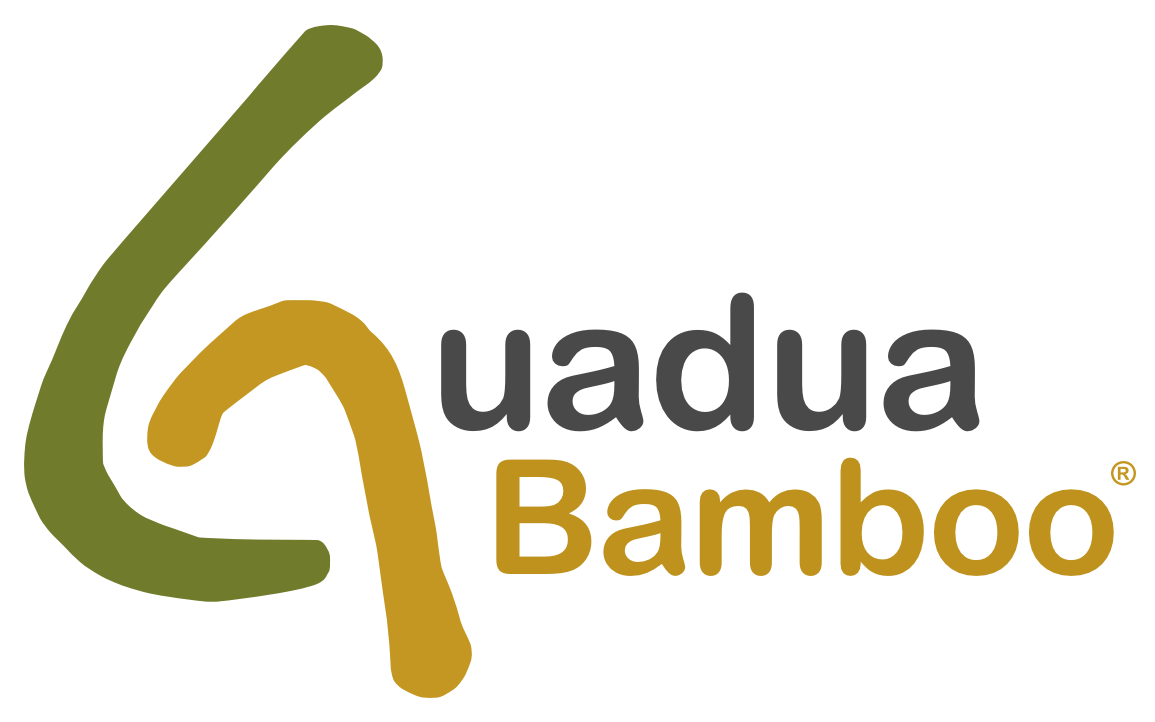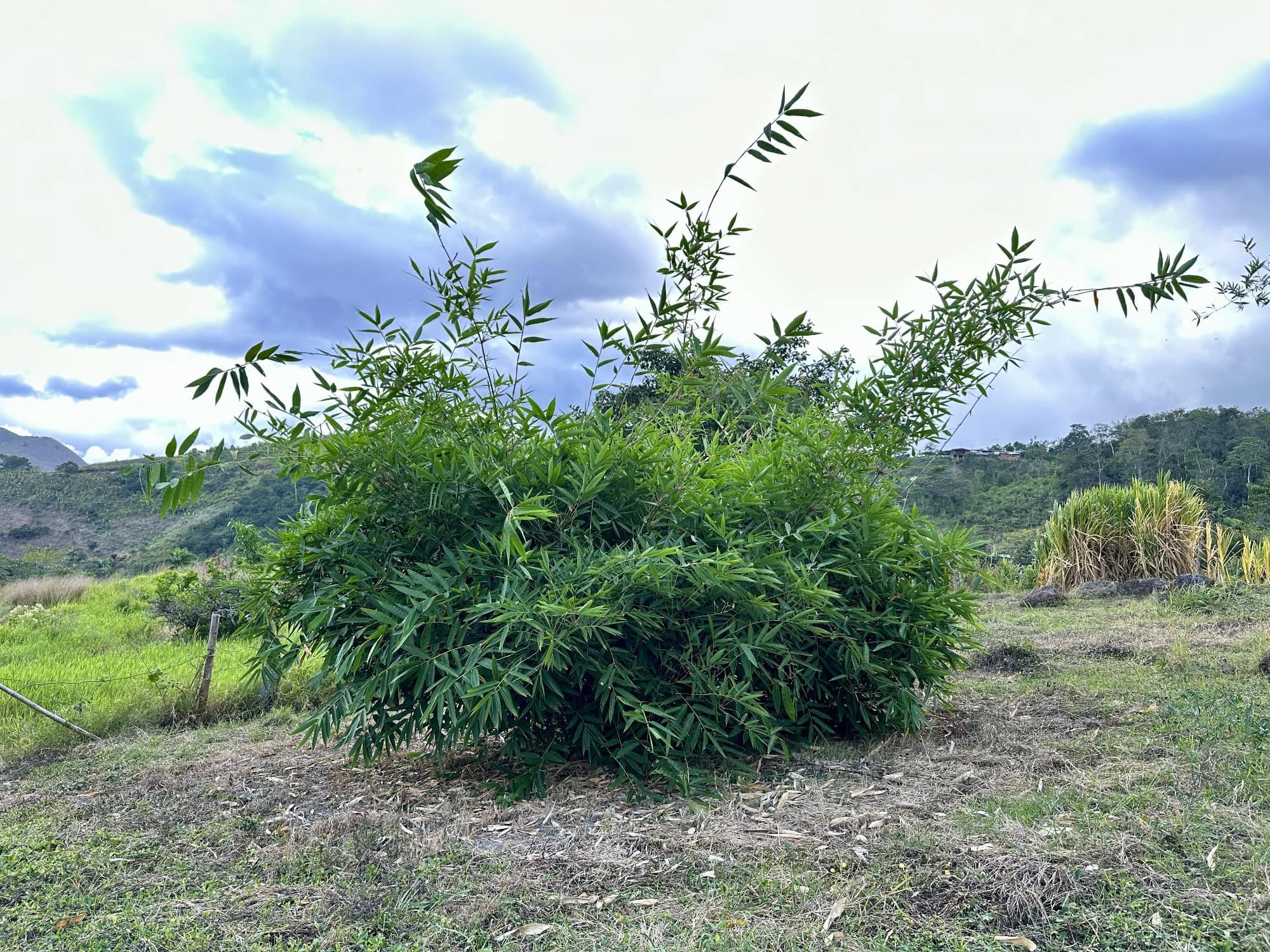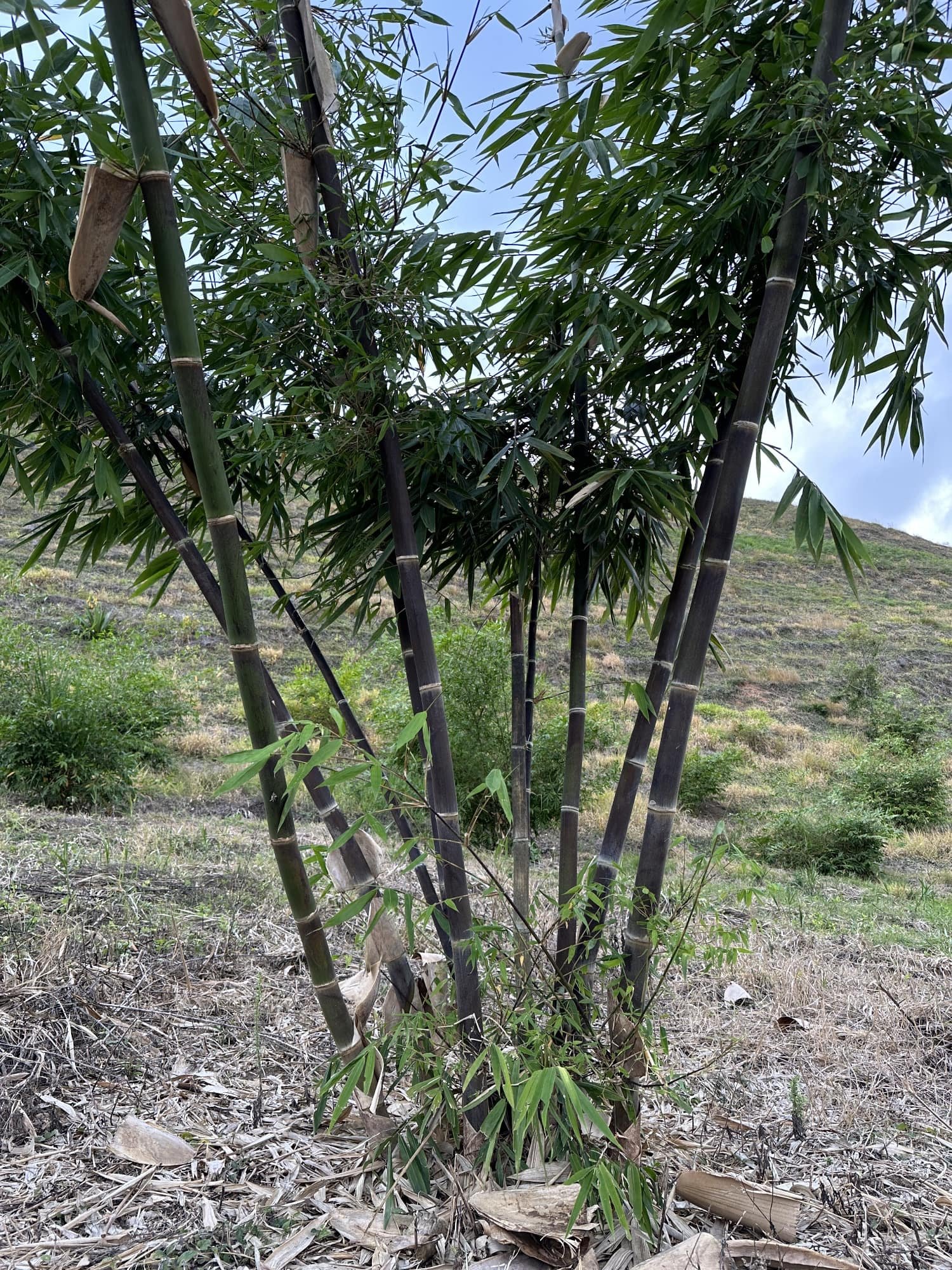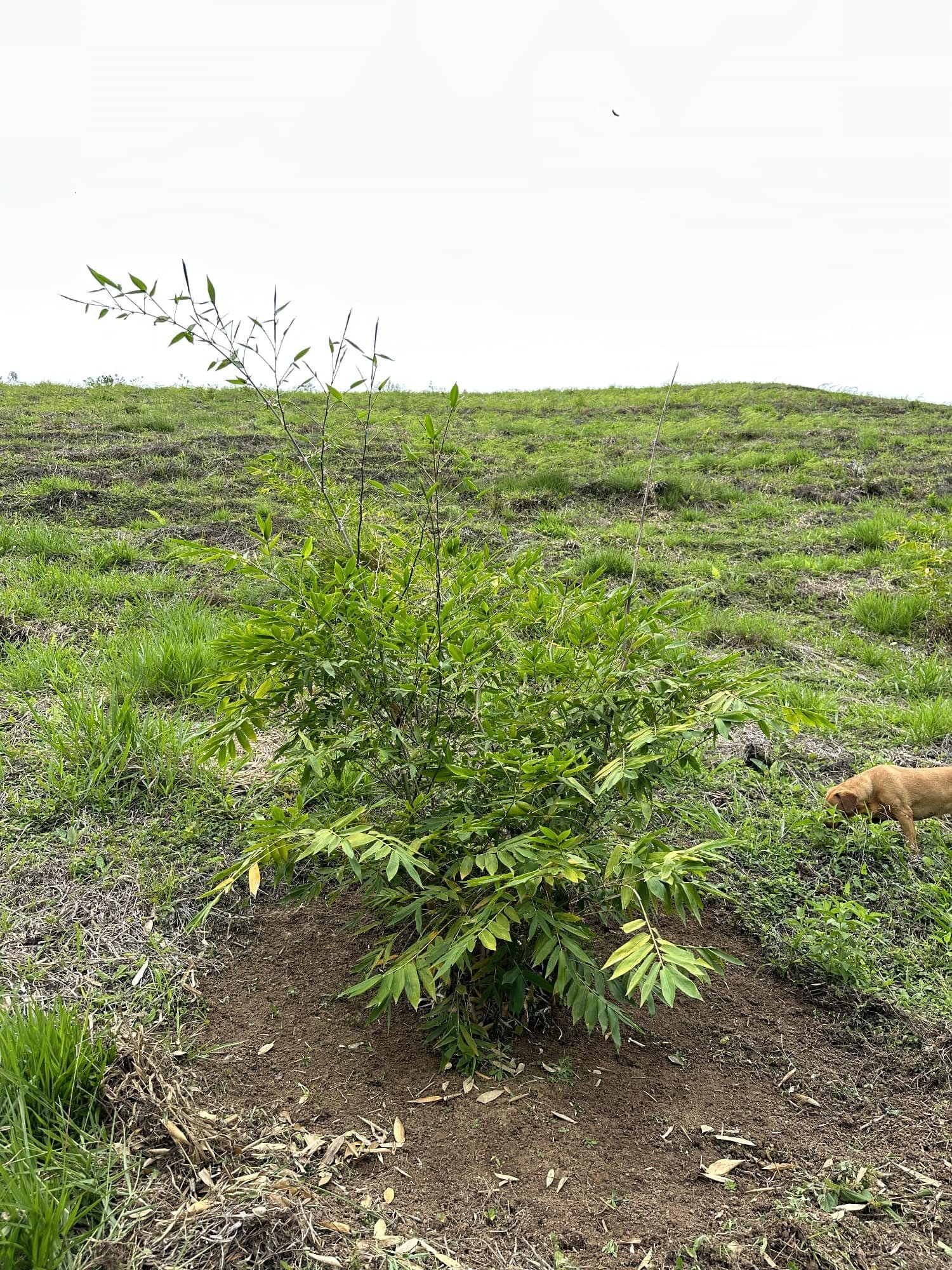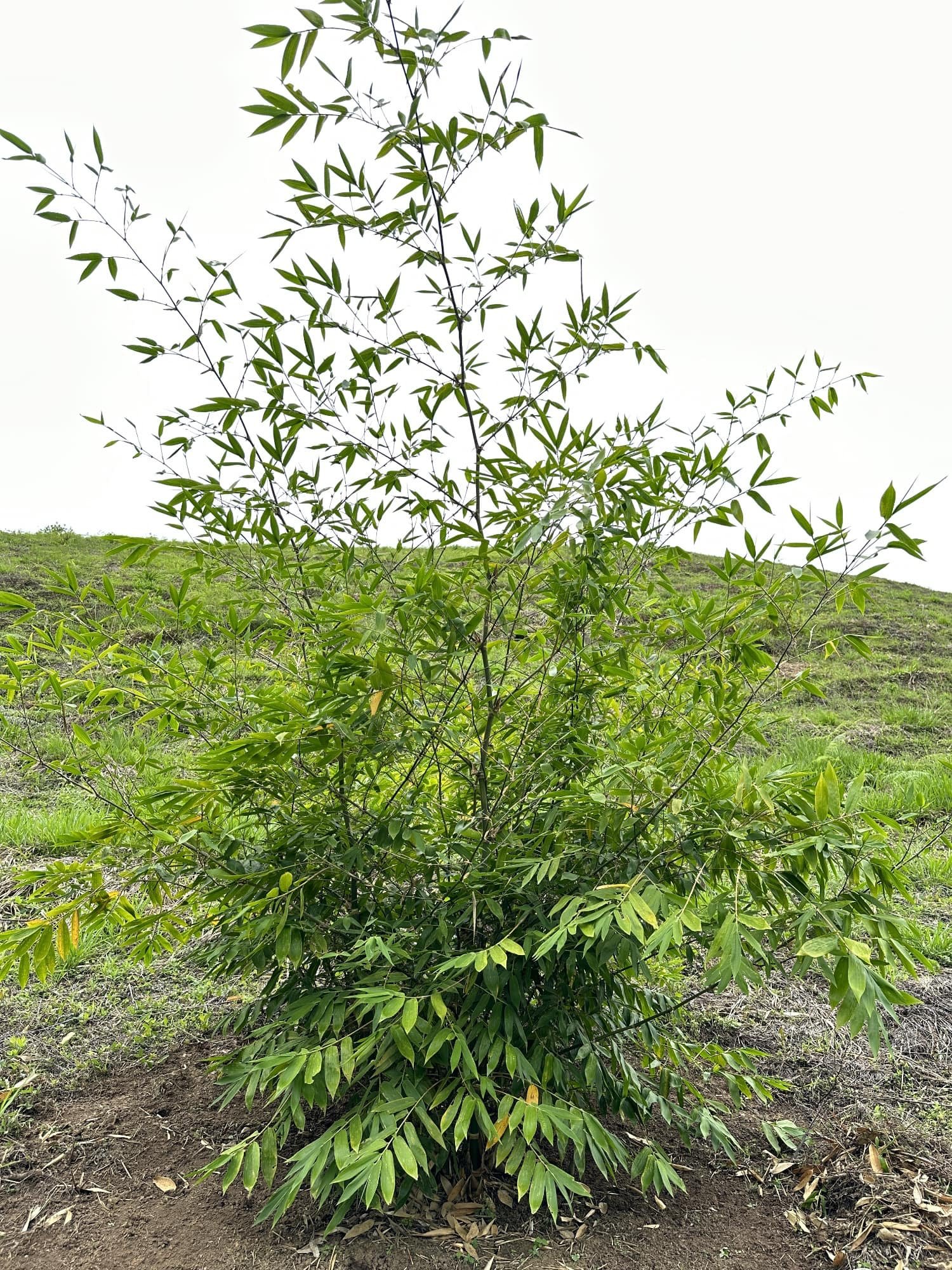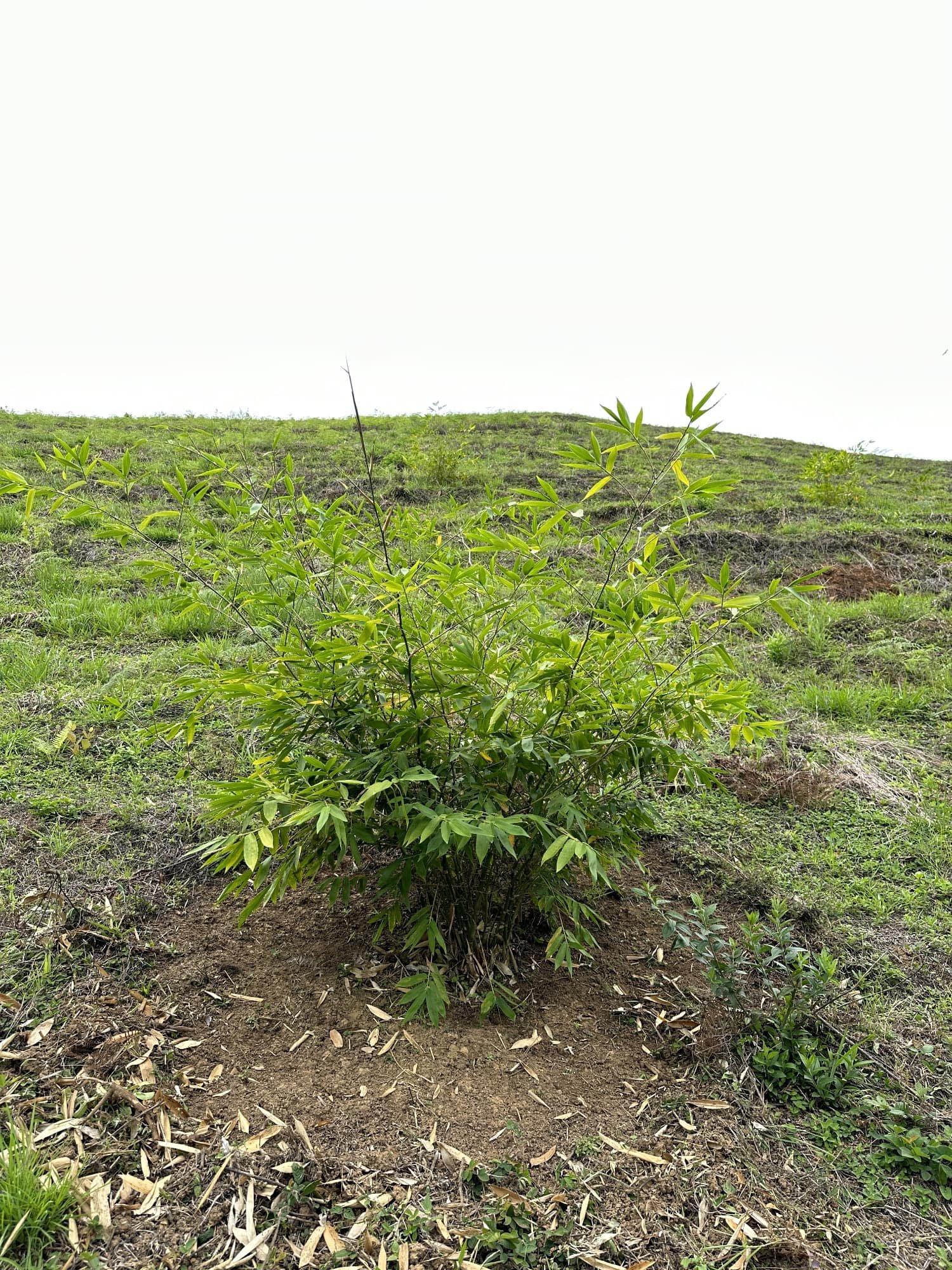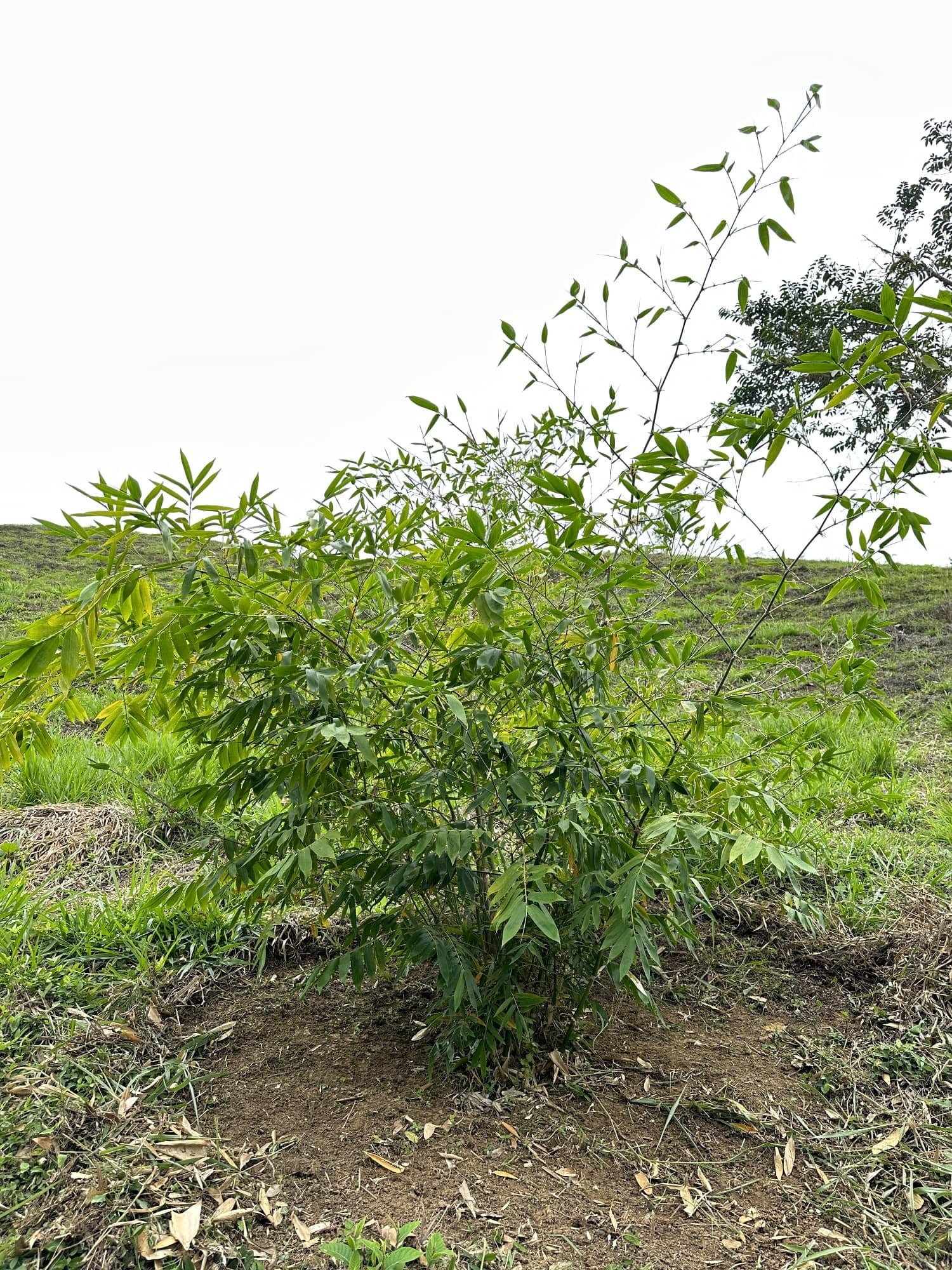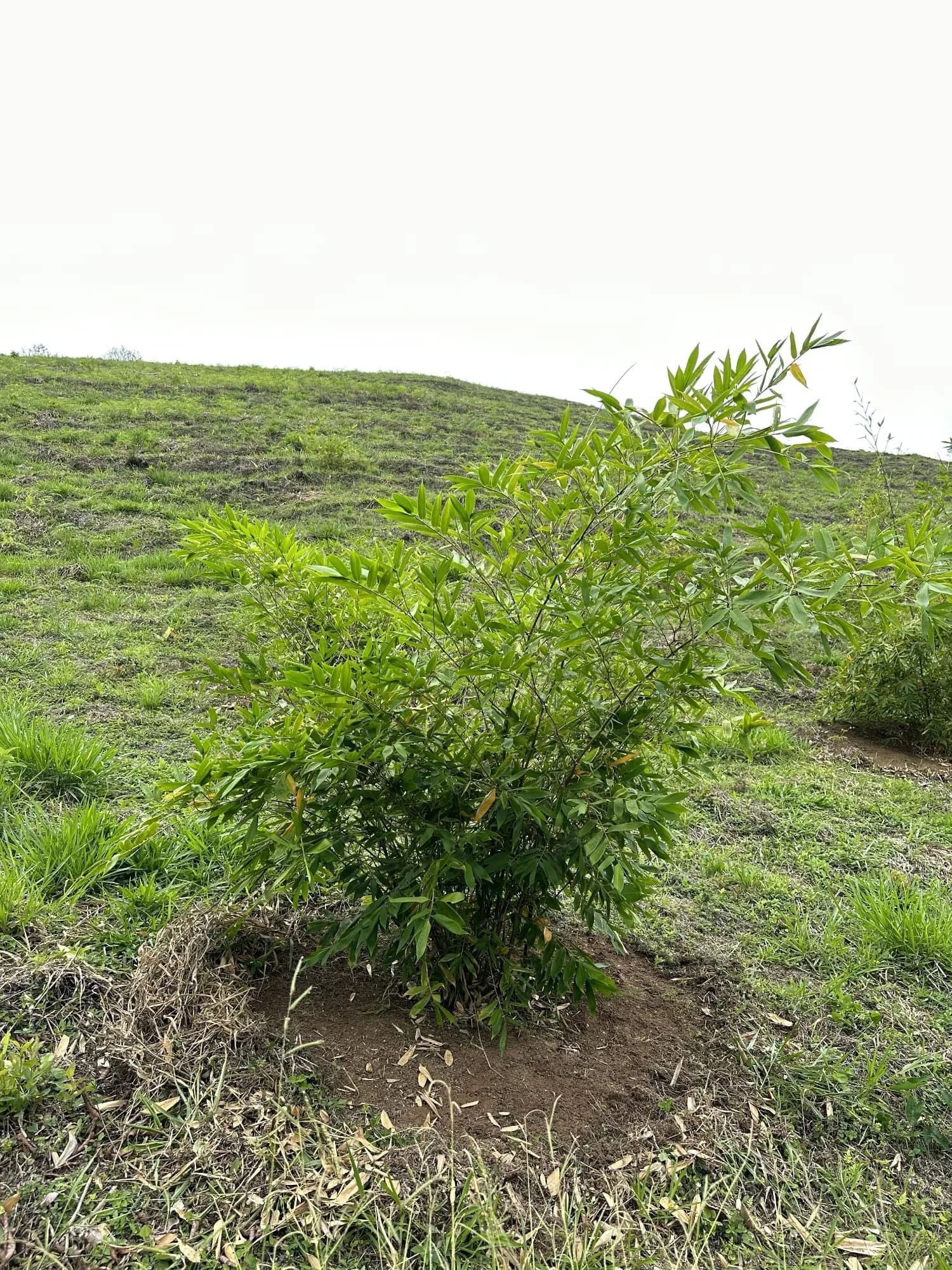Bambusa vulgaris - ID#00657
Bambusa vulgaris, also known as Common Bamboo, originated in the Old World, probably in tropical Asia. It is arguably the most widely cultivated bamboo throughout the tropics and subtropics, but is also found spontaneously or naturalized on river banks. In South-East Asia it is the most commonly encountered cultivated bamboo, found everywhere in villages, on river banks and as an ornamental in towns.
Although the culm of Bambusa vulgaris is not straight, it is the most used of all bamboos. The culms are used e.g. in boats for masts, rudders, outriggers, boating poles, as carrying poles, for fencing and props. It is rarely used as a building material because it is very susceptible to powder-post beetle attack. If no other bamboo is available for building purposes, the culms are used in temporary constructions, for example as wattle in outhouses or barns in Sri Lanka. In El Salvador, split culms are used to support and protect walls. The culms furnish the main material for the bamboo furniture industry and they also produce good quality pulp to make paper. In Irian Jaya (Indonesia) culms are used to make traditional combs and penis gourds ("koteka") in the phallocrypt tradition. The very young shoots are edible but are rarely sold as a vegetable. Plants are often planted as hedges to border land. Leaves of Bambusa vulgaris are sometimes used as forage.
| Plant Info | |
|---|---|
| Species | Bambusa vulgaris |
| Common name | Common Bamboo |
| Average diameter | 4-10 cm |
| Average height | 10-20 m |
| Growing habit | Open Clumping |
| Origin | China, South-East Asia |
| Planting date | 7 June 2022 |
| Planting location | Hacienda Guadua Bamboo (Colombia) |
| GPS coordinates | 3° 49’ 2.928” N 76° 37’ 14.682” W |
| Altitude | 1,279 m |
| ID | #00657 |
| Adopted by | Still available - Adopt now! |
Planting of Bambusa vulgaris - ID#00657




Growth Updates Bambusa vulgaris - ID#00657
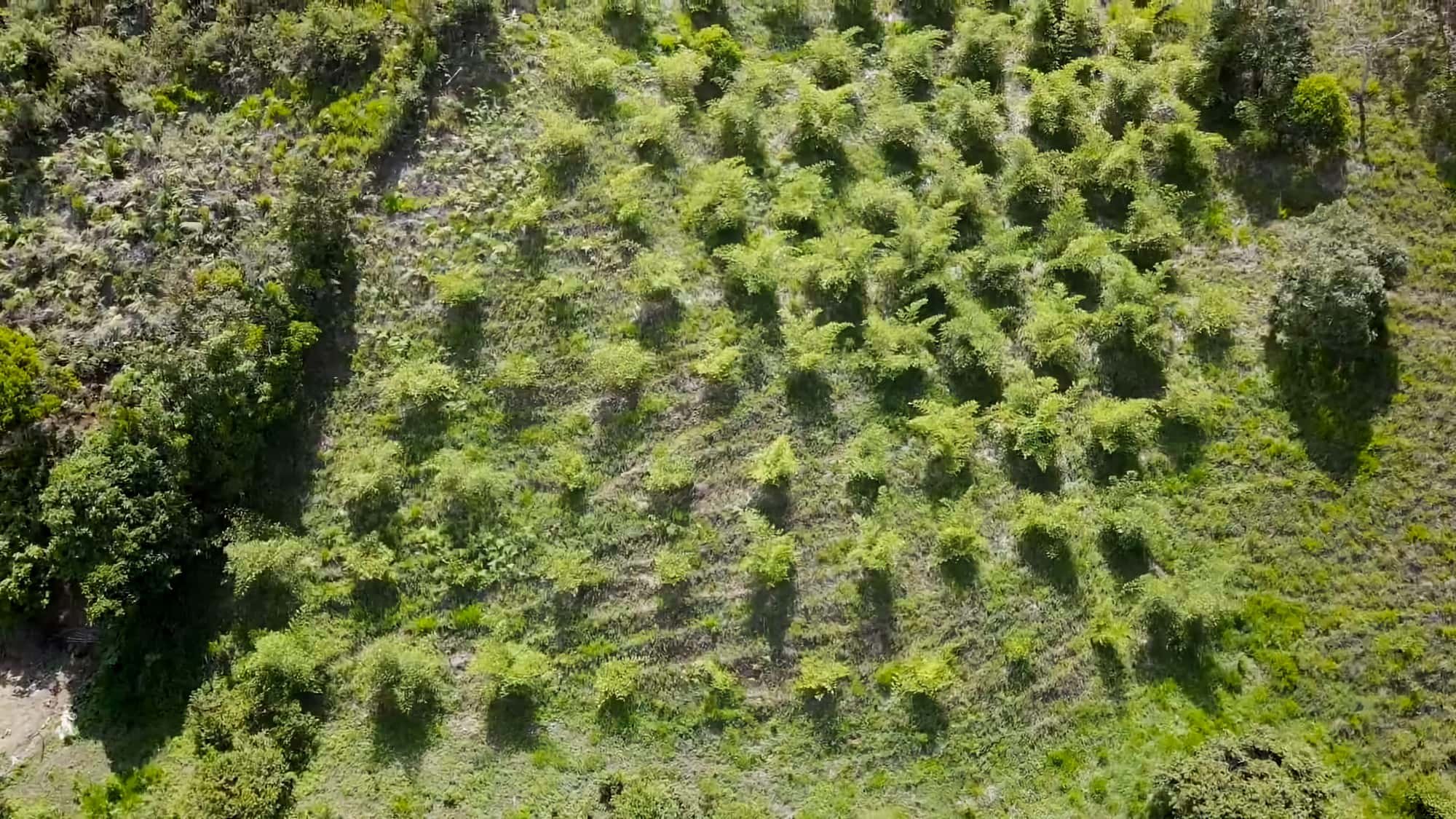
Guadua Bamboo SAS
